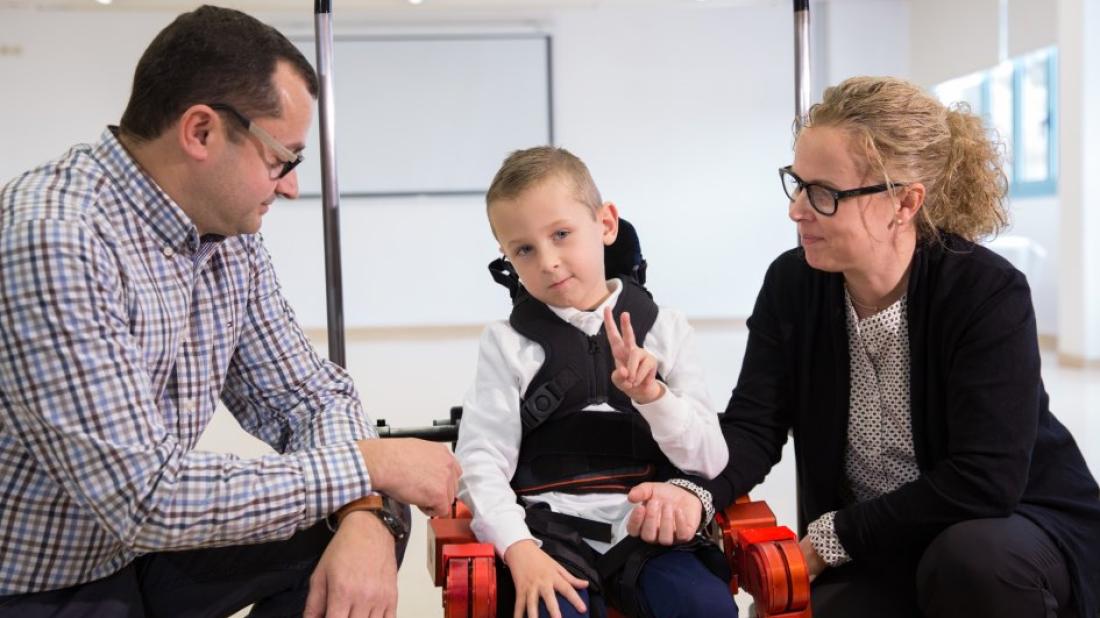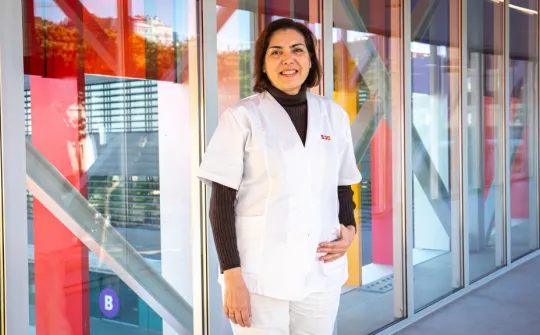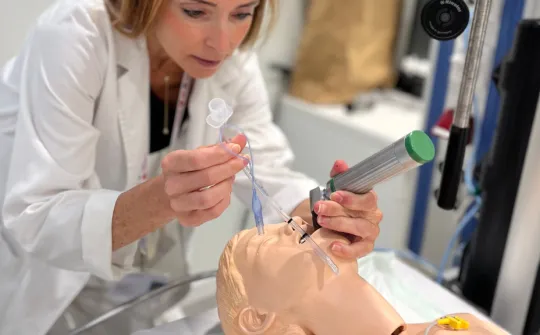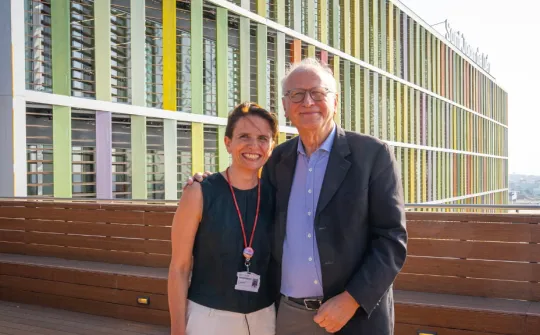SJD Barcelona Children’s Hospital, the first hospital to use an exoskeleton for the rehabilitation of paediatric patients

The structure, which enables patients with Spinal Muscular Atrophy to walk, was developed by Marsi Bionics and provided by Escribano Mechanical Engineering
SJD Barcelona Children’s Hospital is to participate in the testing phase of the first portable paediatric exoskeleton in the world for gait training in patients with type 2 Spinal Muscular Atrophy (SMA) treated by the Rehabilitation and Physical Medicine Department. The structure acts as an external skeleton for gait training in these patients, whose disease affects their mobility and prevents them from walking.
The ability to stand can be recovered with the device formed by supports called orthoses, which can be adjusted and adapted to the patient’s legs and trunk. In the joints, a series of motors imitate the functioning of human muscle and give the child the strength they need to move.
The objective is to prevent the deterioration of the patients’ musculature
This exoskeleton model, called ATLAS 2020, was developed by the Spanish company Marsi Bionics and provided by Escribano Mechanical and Engineering, a complex systems engineering company that has invested in research and development. The model will be loaned for one year and will allow the hospital professionals and companies involved to investigate the possible benefits of walking for SMA patients.
These patients lose strength in their musculature, which results in breathing difficulties and problems in the limbs. Spending a lot of time sitting down weakens the muscles of the rib cage over the years, and can aggravate respiratory problems. The aim of making them walk is to fight against muscle retraction and the possible complications that this can cause for patients with SMA.
Spinal Muscular Atrophy is a genetic neuromuscular disease with an incidence of 1 in 10,000 births. It is estimated that in Spain there are around 1,500 affected families, some of them with more than one sick child. The current treatment for this disease is multidisciplinary and focuses on delaying the onset of complications. SJD Barcelona Children’s Hospital is a national reference hospital for the treatment of SMA, which is treated in the Neuromuscular Disease Unit .
Innovation and development to treat musculoskeletal problems
The first tests were carried out in 2016 with 8 patients at SJD Barcelona Children’s Hospital within the framework of the EXOTrainer research project, funded by the European Commission and in which the Centre for Automation and Robotics (CSIC-UPM) and Marsi Bionics participated. The tests in the first phase yielded optimistic results for the future of this therapy. The degree of patient satisfaction, their tolerance and feeling of fatigue and the safety of the device were also checked. In this second phase we will study whether it improves the progression of the disease and the physical evolution of the patients.
In parallel with the device testing, SJD Barcelona Children’s Hospital, Escribano, the Spanish National Research Council (CSIC) and Eurecat have begun working on a new exoskeleton for another neuromuscular disease, the most common in children: Duchenne muscular dystrophy. The objective of Marsi Bionics is to apply technology to the treatment of neurological diseases that can benefit from devices that facilitate walking.



